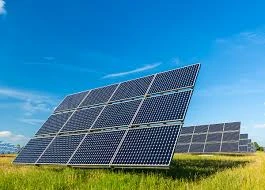selling solar panels
Selling Solar Panels A Bright Future for Renewable Energy
As we face the growing challenges of climate change and environmental degradation, the adoption of renewable energy sources is more critical than ever. Among these, solar energy stands out as one of the most accessible and versatile alternatives. Selling solar panels has emerged not only as a promising business opportunity but also as a way to contribute to a sustainable future. This article explores the motivations behind the increasing demand for solar panels, effective sales strategies, and the future potential of the solar market.
The Growing Demand for Solar Energy
The global shift towards renewable energy sources is driven by several key factors. First and foremost is the urgent need to reduce greenhouse gas emissions. According to the International Energy Agency (IEA), the energy sector is one of the largest contributors to global emissions, accounting for about 42% of total carbon emissions. Solar energy offers a clean, sustainable solution that can significantly mitigate this impact.
Additionally, the economic case for solar is becoming increasingly compelling. As technology advances, the cost of solar panels has decreased dramatically over the past decade. The Solar Energy Industries Association (SEIA) reports that the cost of solar photovoltaic (PV) systems has dropped by more than 70% since 2010. This dramatic reduction makes solar energy more accessible to homeowners and businesses, leading to a surge in installations and, consequently, an increased demand for solar panels.
Understanding the Market
To effectively sell solar panels, it is essential to understand the target market. Potential customers range from residential homeowners looking to reduce their electricity bills to large-scale commercial enterprises seeking to enhance their sustainability profiles. Each segment has unique needs and motivations, which should inform your sales approach.
For residential customers, the primary selling points often include long-term savings on electricity bills, increased property value, and environmental impact. Many homeowners are also motivated by government incentives and rebates that can significantly reduce the upfront costs of solar installations. It is crucial to be well-versed in local regulations and incentives to provide accurate and compelling information during the sales process.
On the other hand, commercial clients may be more focused on return on investment (ROI) and corporate responsibility. Highlighting the financial benefits and sustainability goals can resonate well with businesses looking to improve their brand image while also reducing operating costs.
Effective Sales Strategies
selling solar panels

Selling solar panels requires a mix of effective communication, education, and personalized solutions. Here are some strategies to ensure success in the solar market
1. Educate Your Clients Many potential customers may not fully understand how solar panels work or the benefits they offer. Providing educational resources—such as webinars, brochures, or one-on-one consultations—can help demystify the technology and make it more appealing.
2. Leverage Customer Testimonials Positive experiences shared by previous customers can significantly influence potential buyers. Collect testimonials and case studies that demonstrate successful installations and satisfied customers to build credibility and trust.
3. Offer Customized Solutions Every home and business has unique energy needs. Tailoring your pitch to show how specific solar solutions can meet those needs will demonstrate your commitment to customer service and satisfaction.
4. Utilize Online Marketing Given the rise of digital communications, maintaining an active online presence is essential. Use social media, search engine optimization (SEO), and online advertising to reach a broader audience. Engaging content that educates customers about solar energy and its benefits can draw potential leads to your business.
5. Build Partnerships Collaborating with local governments, environmental organizations, and other businesses can enhance your credibility and visibility in the community. Such partnerships can also lead to referrals that might not be attainable through traditional marketing methods.
The Future of the Solar Market
The solar panel industry shows no signs of slowing down. With ongoing advancements in technology, increasing efficiency, and falling costs, the future looks bright for solar energy. As climate policies become more stringent globally, the demand for solar solutions is expected to rise, paving the way for a vibrant solar panel market.
In conclusion, selling solar panels presents an exciting opportunity to be part of the transition to renewable energy. By understanding the market, employing effective sales strategies, and embracing the future potential of solar energy, entrepreneurs can not only build successful businesses but also play a significant role in creating a sustainable world. The time to invest in solar energy is now, and with the right approach, the possibilities are limitless.
-
String Solar Inverter: The High-Efficiency Solution for Smart Solar EnergyNewsJul.14,2025
-
Revolutionizing Rooftop Energy with the Power of the Micro Solar InverterNewsJul.14,2025
-
Power Independence with Smart Off Grid Solar Inverter SolutionsNewsJul.14,2025
-
On Grid Solar Inverter: Powering the Future with Smart Grid IntegrationNewsJul.14,2025
-
Monocrystalline Solar Panels: High-Efficiency Power for the Future of Clean EnergyNewsJul.14,2025
-
Bifacial Solar Panel: A Smarter Investment for Next-Generation Energy SystemsNewsJul.14,2025







